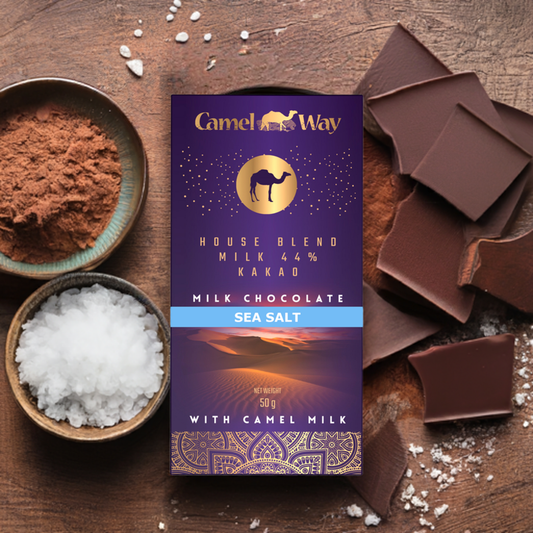
Can camel milk help treat allergies?
Millions of people suffer from allergies, from mild skin irritations like eczema to severe food allergies.
Camel milk has emerged as a powerful natural remedy due to its unique composition, offering promising therapeutic potential for combating various allergies effectively.

Why is camel milk hypoallergenic?
Camel milk is remarkably different from cow's milk due to its unique protein profile. It naturally lacks allergy-inducing proteins such as A1 β-casein and β-lactoglobulin, commonly found in cow's milk.
Instead, it contains easily digestible A2 β-casein, making it significantly safer for individuals sensitive to cow's milk proteins.
At CamelWay, we believe in the extraordinary power of camel milk. Since 2019, we have proudly served the EU with premium camel milk products that redefine quality. Our selection of fresh camel milk and nutrient-rich camel milk powder is crafted to deliver unmatched taste and health benefits. Buy camel milk from CamelWay and experience a natural boost in nutrition and vitality every day.

Can camel milk help cure food allergies?
Recent scientific research provides compelling evidence for the benefits of camel milk in fighting severe food allergies. A study published by the Israeli Medical Association demonstrated that children with severe food allergies experienced significant improvement when regularly consuming camel milk.
This positions camel milk as a highly recommended dietary alternative for people struggling with food allergies, lactose intolerance, and cow's milk allergy.

Does camel milk help treat eczema?
Eczema, or atopic dermatitis, is a chronic skin condition characterized by inflammation, intense itching, and frequent flare-ups. Thanks to camel milk's powerful anti-inflammatory compounds like lactoferrin and immunoglobulins, it has been shown to alleviate symptoms and soothe irritated skin.
Regular consumption of camel milk can support overall skin health and significantly reduce inflammation related to eczema.

How does camel milk reduce allergic reactions?
Studies suggest that camel milk's unique nano-antibodies can modulate immune responses, reducing the body's reaction to common allergens. Its distinctive chemical makeup helps naturally calm the immune system, potentially lessening allergic symptoms.
Regular intake of camel milk could thus offer a gentle yet effective way to reduce allergic reactions and enhance overall immunity.

Is camel milk scientifically proven to help allergies?
While current studies strongly support camel milk's allergy-fighting potential, ongoing research is essential to confirm these benefits comprehensively.
Nevertheless, the existing scientific evidence strongly indicates camel milk as a beneficial, hypoallergenic dietary choice that naturally assists in fighting allergic conditions.

Can camel milk improve your quality of life with allergies?
Allergies significantly impact daily life and comfort, prompting the need for effective natural treatments. Camel milk, with its scientifically backed hypoallergenic properties and immune-regulating nutrients, emerges as an ideal dietary solution.
By incorporating camel milk into your routine, you can naturally ease allergy symptoms and improve your overall well-being.
Article sources and scientific research
- Camel milk: a possible alternative for children with cow's milk allergy? (PMID: 31692312)
https://pubmed.ncbi.nlm.nih.gov/31692312/ - Camel milk for food allergies in children (PMID: 16382703)
https://pubmed.ncbi.nlm.nih.gov/16382703/ - Camel Milk Is a Safer Choice than Goat Milk for Feeding Children with Cow Milk Allergy
https://www.ncbi.nlm.nih.gov/pmc/articles/PMC3658853/ - The Antioxidant, Anti-Inflammatory and Immunomodulatory Effects of Camel Milk
https://www.ncbi.nlm.nih.gov/pmc/articles/PMC9039309/ - Cross-over clinical trial for evaluating the safety of camel's milk intake in patients who are allergic to cow's milk protein (PMID: 29223706)
https://pubmed.ncbi.nlm.nih.gov/29223706/











